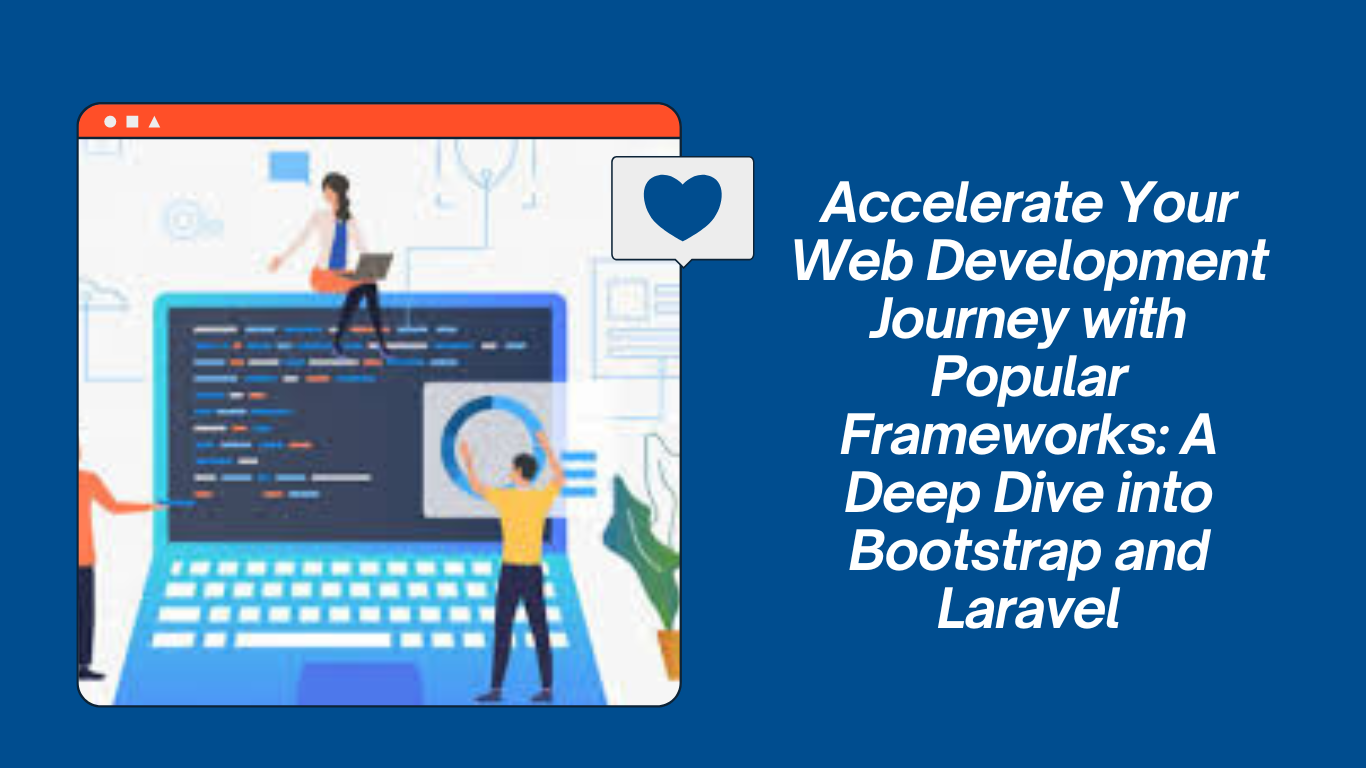
Accelerate Your Web Development Journey with Popular Frameworks: A Deep Dive into Bootstrap and Laravel
In the ever-evolving landscape of web development, staying abreast of the latest tools and technologies is crucial for building dynamic and responsive websites. Web development frameworks play a pivotal role in streamlining the development process, enhancing efficiency, and ensuring a robust end-product. In this blog post, we’ll explore two of the most popular web development frameworks—Bootstrap and Laravel—and shed light on how they can significantly expedite the development journey.
Web Development Frameworks Unveiled:
Web development frameworks are pre-established structures that provide developers with a foundation for building web applications. These frameworks come equipped with reusable code snippets, libraries, and tools that simplify common development tasks, allowing developers to focus on creating unique features and functionalities.
Bootstrap: Revolutionizing Front-End Development
- Responsive Design: One of Bootstrap’s standout features is its responsive grid system, ensuring seamless compatibility across various devices and screen sizes.
- Pre-designed Components: Bootstrap offers a rich library of pre-designed components, such as navigation bars, modals, and forms, accelerating development by reducing the need for coding from scratch.
- Extensive Documentation: Bootstrap’s comprehensive documentation is a boon for developers, providing clear guidelines and examples to facilitate quick implementation.
Laravel: Empowering Back-End Development
- Eloquent ORM: Laravel’s Eloquent Object-Relational Mapping simplifies database interactions, making it easier for developers to work with databases through eloquent, expressive syntax.
- Artisan Command Line: Laravel’s Artisan command line tool automates repetitive tasks, saving developers time and effort during the development lifecycle.
- Blade Templating Engine: Blade, Laravel’s lightweight yet powerful templating engine, enhances code readability and simplifies the integration of dynamic content.
Benefits of Embracing Web Development Frameworks:
- Rapid Development: Both Bootstrap and Laravel significantly speed up development by providing ready-made solutions for common tasks, enabling developers to focus on unique project requirements.
- Consistency: Frameworks promote consistency in coding standards, leading to cleaner code and easier collaboration among developers working on the same project.
- Community Support: Being open-source, Bootstrap and Laravel boast vibrant communities that contribute to continuous improvement, ensuring that developers have access to a wealth of resources and support.
Conclusion:
In the realm of web development, embracing frameworks like Bootstrap and Laravel is akin to having a powerful ally by your side. These frameworks not only simplify the development process but also enhance the overall quality and performance of web applications. Whether you’re a seasoned developer or just starting, incorporating these frameworks into your toolkit can make a significant difference in your web development endeavors. So, dive in, explore, and witness the transformative impact of Bootstrap and Laravel on your projects. Accelerate your web development journey today!
FAQs:
Q1: What is Bootstrap, and how does it enhance web development?
A1: Bootstrap is a front-end framework that facilitates responsive design and offers pre-designed components, expediting web development.
Q2: What sets Laravel apart in back-end development?
A2: Laravel excels with features like Eloquent ORM for simplified database interactions and the Artisan command line for task automation.
Q3: How do these frameworks contribute to rapid development?
A3: Bootstrap and Laravel provide ready-made solutions, reducing development time and allowing developers to focus on unique project requirements.
Q4: Are Bootstrap and Laravel suitable for beginners in web development?
A4: Yes, both Bootstrap and Laravel offer extensive documentation and a supportive community, making them beginner-friendly frameworks for web development.
Q5: Can I use Bootstrap and Laravel together in a web project?
A5: Absolutely! Bootstrap primarily handles front-end development, while Laravel excels in back-end development. Integrating both frameworks can result in a robust and efficient full-stack web application.
